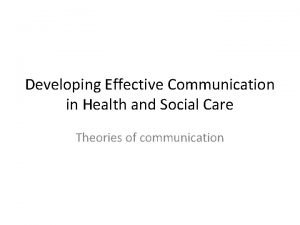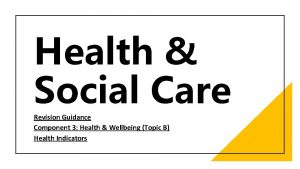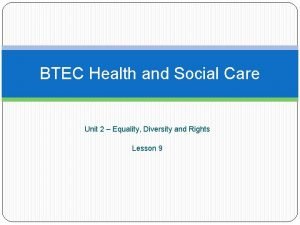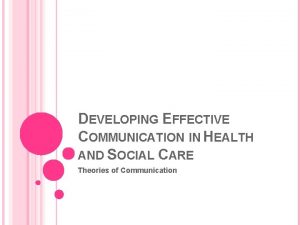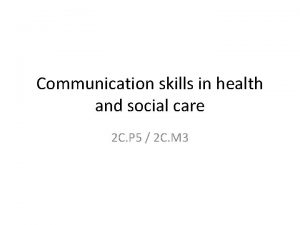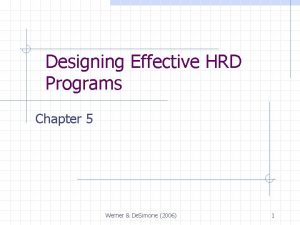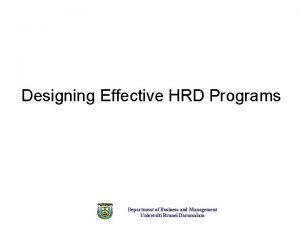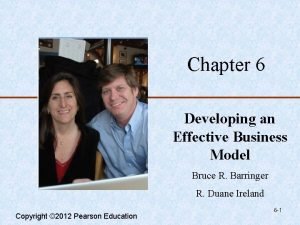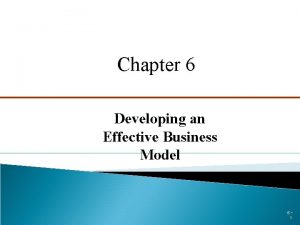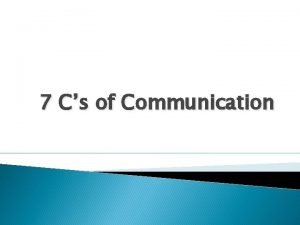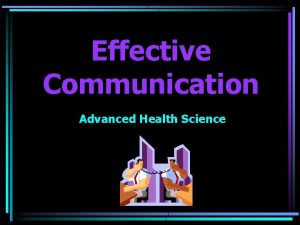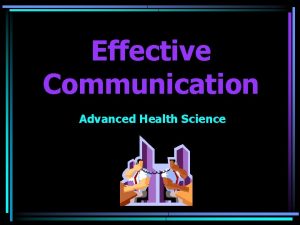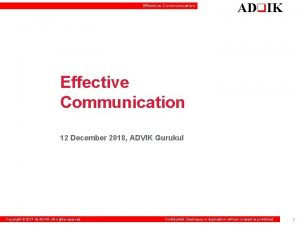Developing Effective Communication in Health and Social Care










- Slides: 10

Developing Effective Communication in Health and Social Care Theories of communication

One–to–one communication • This involves the two-way process in which each person tries to understand the viewpoint of the other person. • Good one-to-one communication involves the process of checking understanding, using reflective or active listening.

Michael Argyle (1972) • Skill that had to be learned that is like driving a car. • Like driving a car you have to change your method to match the road conditions. • Involves a constant cycle of watching what is happening then adapting to it.

Argyle (1972) Communication Cycle 1. 2. 3. 4. 5. 6. 7. Ideas occur Message encoded Message Sent Message Received Message Decoded Idea understood

• http: //www. youtube. com/watch? v=v. Cm. H ia-n. Tp. A

Group communication • Groups are collections of people who come together because they have a common purpose or goal and who gradually develop a shared sense of belonging or group identity.

Types of Groups • Primary groups Face to face situations in which group members know each other • Secondary groups Widely distributed membership. Many group members who may never meet each other.

Types of groups in H & S care settings • Report or handover meetings between care team members • Case conferences and discharge planning meetings • Support meetings for team members to share experiences and offer support. • Therapeutic groups. • Meetings with management staff, service users and relatives. • Educational Groups and classes.

Tuckmans theory of group formation (1965)

Homework 1. Describe how the communication cycle works. 2. Name two main forms of communication. 3. What are the two things that people have to do during verbal communication? 4. Describe two ways that care workers might use their verbal communication skills in a care setting. 5. Identify three different examples of non-verbal communication. 6. Describe how an individual with communication problems might use technological or human aids to communicate with others. 7. Identify the two main contexts of communication in health and social care settings.
 Communication theories in health and social care
Communication theories in health and social care Health and social care component 3
Health and social care component 3 Care value base health and social care
Care value base health and social care Theories of communication in health and social care
Theories of communication in health and social care Observation skills in health and social care
Observation skills in health and social care Steps in designing hrd programs
Steps in designing hrd programs Designing and developing effective hrd programs
Designing and developing effective hrd programs An example of appraisal in health and social care
An example of appraisal in health and social care Sam and verna williams
Sam and verna williams 6 components of business model
6 components of business model Core strategy business model
Core strategy business model
